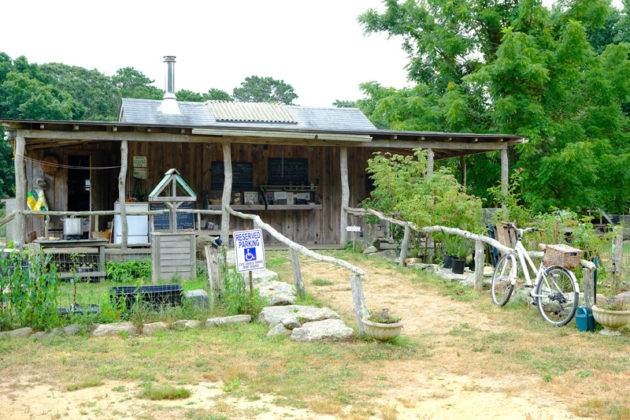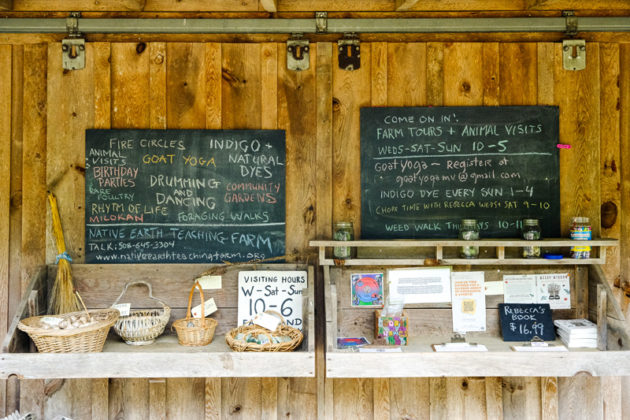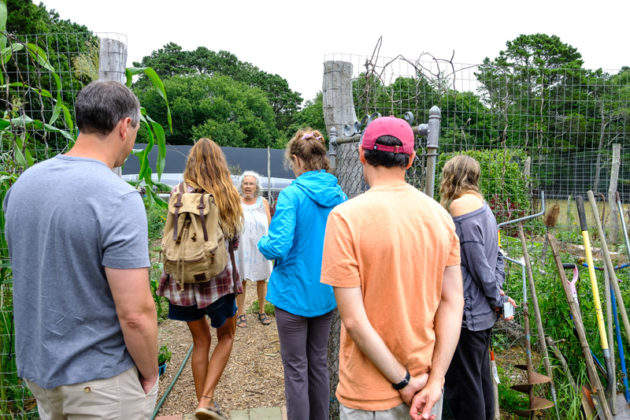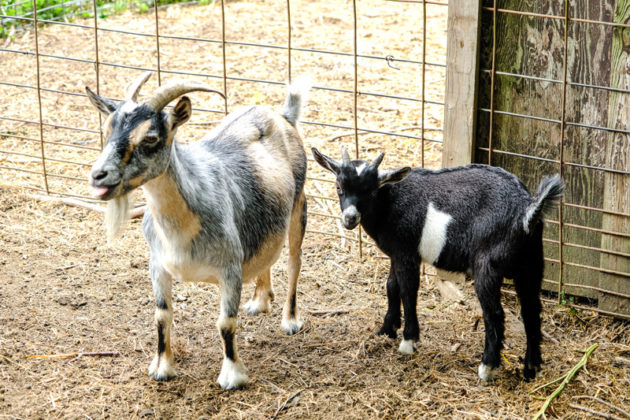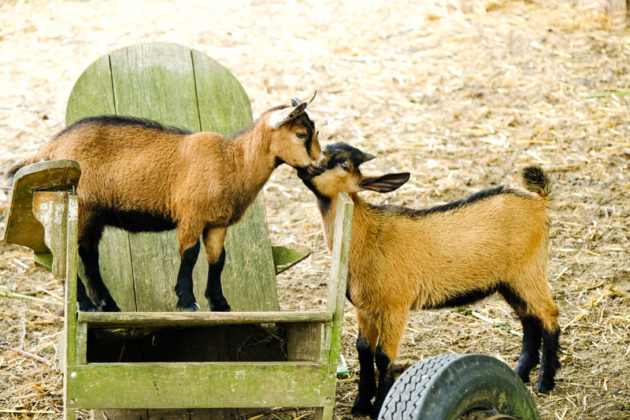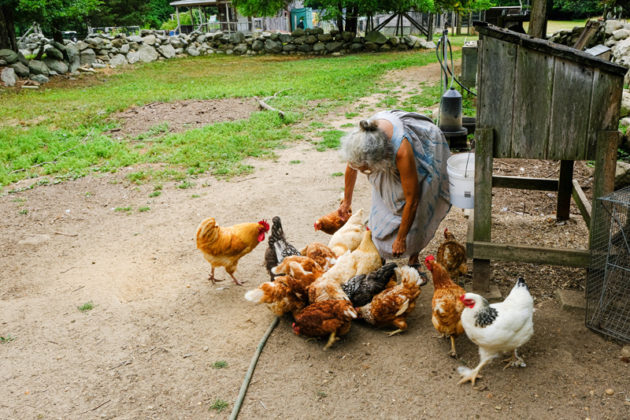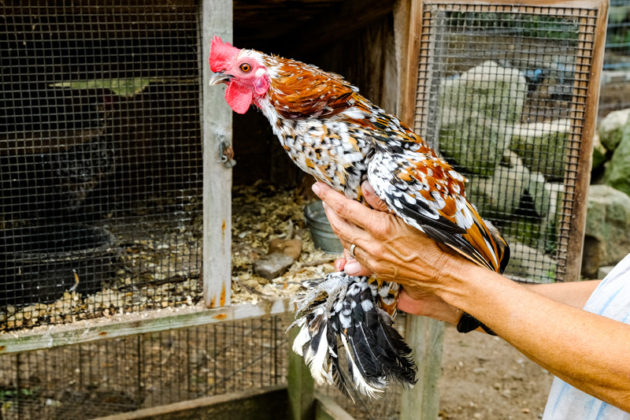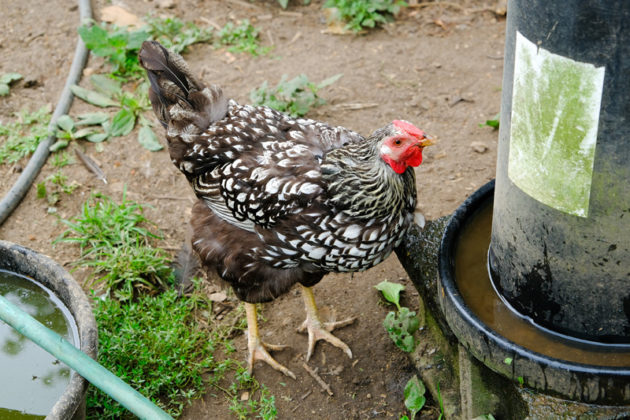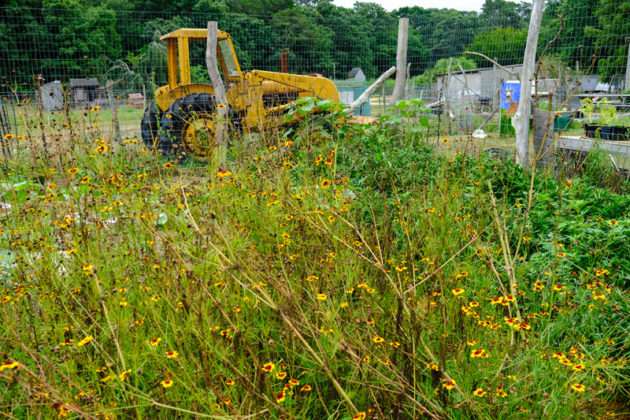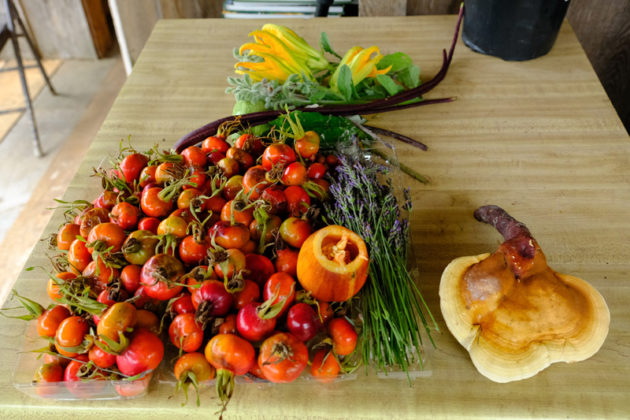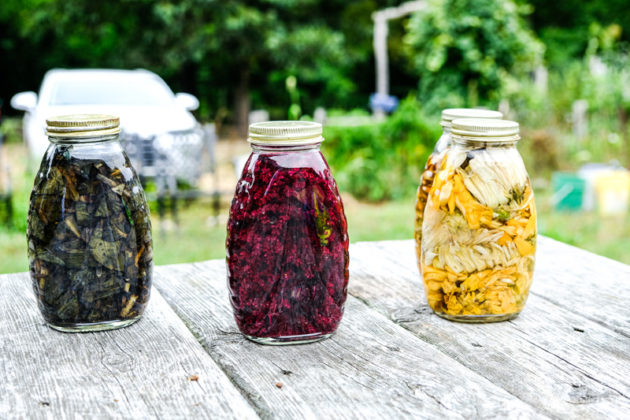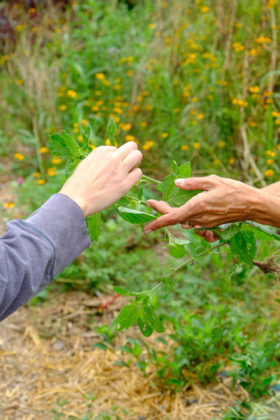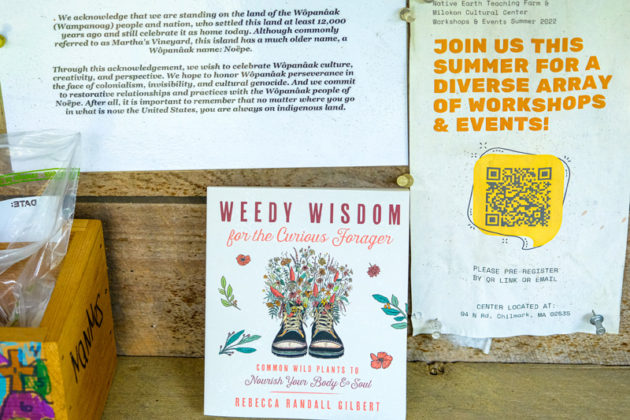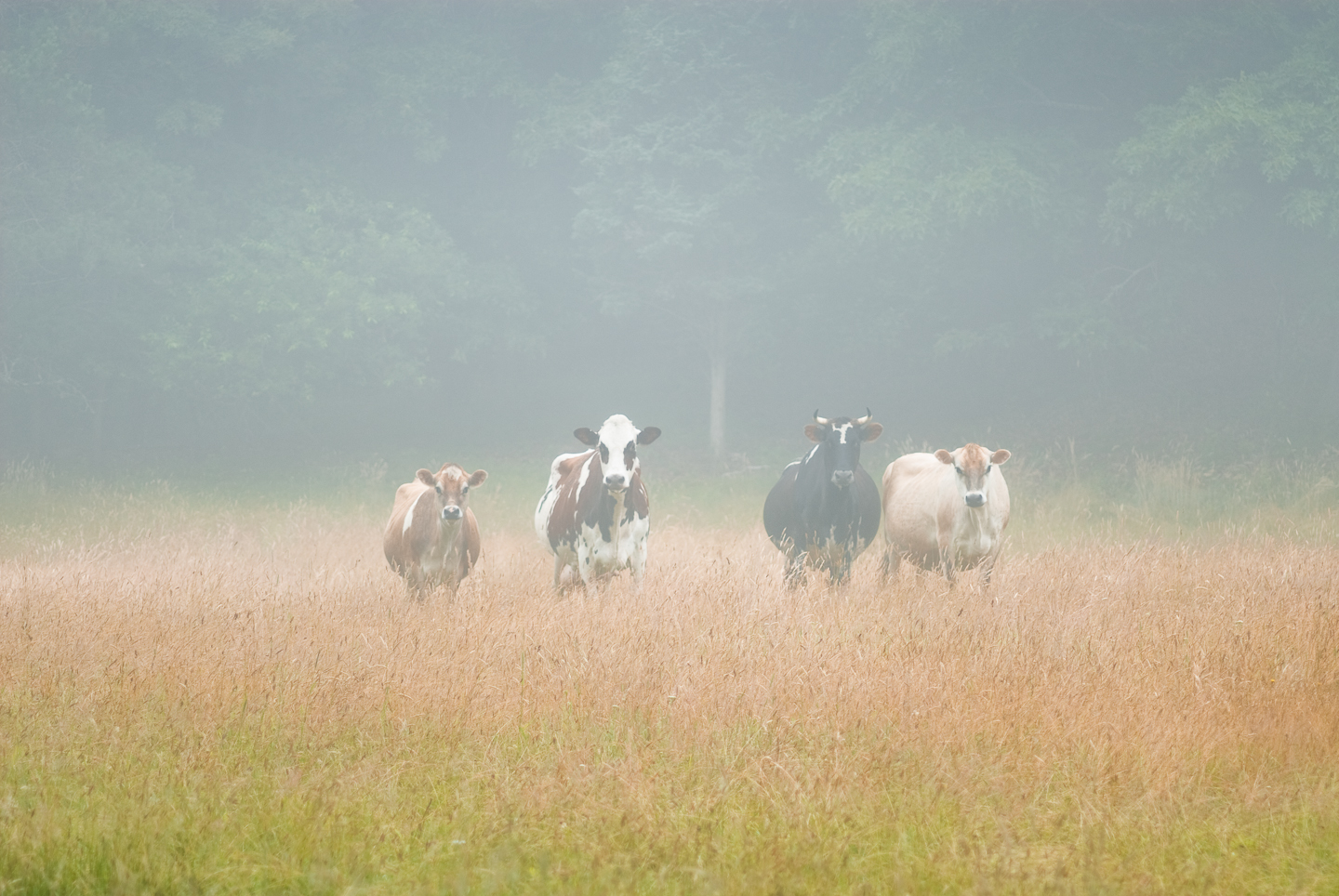Native Earth Teaching Farm is a little slice of heaven offering the opportunity to step into a gentler pace and space. While it’s the perfect place for families, don’t be fooled, adults will have just as much fun on their own.
There are lots of options to choose from but, says teaching farmer Rebecca Gilbert, “A lot of what people enjoy is coming and hanging out, bringing a picnic, playing with the goats for an hour. Some people come regularly just to cuddle the goats and then they leave.” And they just call out to be cuddled. These 2-feet-tall pygmy and dwarf goats have kids that are pygmy/dwarf crosses that are too cute to be believed. While there are lambs, sheep, and various poultry, these mini baby goats win hands down. Gilbert says, “Kids are cute and so are human kids, but when you get them together, it’s super cute.”
These gentle, mischievous creatures are full of fun and love. “Because we get so many visitors, all the animals are very tame,” Gilbert explains. “The goats, in particular, are extremely friendly because they are visited in the summer by Camp Jabberwocky [the oldest sleepaway camp in the U.S. for people with disabilities], regular visitors, drop-ins, and the Goat Yoga classes twice a week.” Wait, I hear you cry. Downward-facing dog with little goats running around? Turns out it’s good for you, and Gilbert says, “Has proved very beneficial for the goats.”
In addition to the animals, there is a community garden with vegetables, herbs, and flowers including indigo and other dye flowers. One corner is for Vineyard Havens, a nonprofit that brings families to the Island for a week of respite when they have a family member with cancer. Gilbert also offers foraging walks in the garden of common edible weeds, the perfect chance to ask questions and trade recipes and ideas. Gilbert has culled her knowledge into a book “Weedy Wisdom for the Curious Forager,” which in fact grew out of the classes she taught with Camp Jabberwocky. In it you learn how to gather edible flowers, work with invasive species, find flavor correspondences, process healing plants, and preserve your harvest.
At Native Earth, the farm tours and animal visits are the staples. For something a little more hands-on, children can help Gilbert with daily chores such as feeding the various animals and cleaning their living spaces. A favorite, of course, are opportunities to work with Gilbert to train the goats, socializing them so they become familiar with people petting and handling them.
Another really engaging activity is indigo dying. It’s great for reviving a favorite article that has gotten stained or faded. Bring an item made of natural fiber (like cotton, wool, linen, or silk) to dip. Skeins of “bare” yarn, small cotton items, and silk scarves are also available for purchase. “It can be a simple tie-dye experience with kids, but you can get a little more in-depth learning about the plant that it comes from, the chemistry, and its history…all of which is very interesting,” Gilbert says. “It’s a very ancient process, which has this combination of science and magic that’s a lot of fun to watch as the item changes color when it comes out of the dye vat and it’s always fascinating for people to watch.”
Gilbert also teaches knitting and other fiber arts, and includes wool processing. You can learn to spin using the simple and portable hand spindle, sometimes called a drop spindle. Some variation of this method has been used from prehistoric times on every continent except Antarctica. Once you have learned on the hand spindle, it is much easier to spin on the wheel. Likewise, Gilbert offers “Herbal Medicine Making: First Aid in the Field, Tinctures, and Smokes, Steams, Baths, and Poultices.”
While the weather holds, you can book a Family Fire. Choose an evening to watch dusk fall over the farm and light the fire. You may do some stargazing and tell stories. If you wish, you may bring something to roast.
Rebecca’s grandparents bought the farm in the late 1920s. It was a failed sheep farm sold at auction by a whaling captain and his wife. Her grandparents wanted to live here because they were artists, and her grandfather loved the Island light. “My grandmother wanted to live here because she was involved in anti-racism work and that was already something the Island was known for,” Gilbert shares. “She also wanted to grow most of her own food.” The farm was quite inexpensive at the time because no one foresaw tourism, and sheep farming was on the wane. Gilbert was a “summer kid” who always knew the farm would be her home someday, although at first, she envisioned it as a wildlife refuge. But the teaching farm was born, however, from her growing concern about how disconnected many people are from food and land.
Gilbert goes out of her way to welcome everyone, residents and visitors alike, to her home. She says, “One of the things I really like to do is a custom experience. We’ve had birthday parties and all kinds of other events. But, also, if there is something you and a few friends or your family are interested in learning, we can do it according to the interests of the group. That is what I really enjoy because we can meet each other halfway, and we can have a really good time doing those things.”
Native Earth Teaching Farm is at 94 North Road, Chilmark. For details about activity days, times, and costs see nativeearthteachingfarm.org/class-activity-schedule or call 508-645-3304. An adult must be present, and responsible for the children during farm visits. Is cost an issue? Pre-arranged barter is available as donations by check, cash, or Venmo.

